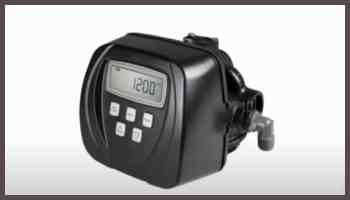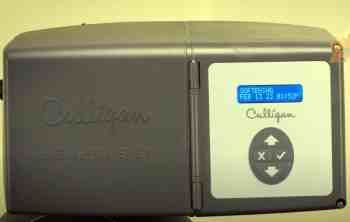In the world of water softeners, two names often come up in conversation: Clack and Culligan. Both are renowned for their quality products, but which one is the better choice for your home?
In this comprehensive analysis, we’ll explore the pros and cons of each brand, helping you make an informed decision.
A Brief Comparison Table
| Feature | Clack Water Softener | Culligan Water Softener |
| Ease of Installation | Easy | Varies by model |
| Maintenance | User-friendly | May require professional |
| Valve Technology | Patented WS1 Control Valve | Varies by model |
| Customizable Features | Yes | Limited |
| Price | Affordable | Higher |
| Brand Recognition | Limited | Well-established |
| Customer Support Network | Less extensive | Comprehensive |
| Product Range | Good | Wide |
| NSF Certification | Yes | Yes |
| Manufacturing Location | USA (Wisconsin) | Global (Including USA) |
| Company Ownership | Family-owned | Private |
The Tale of Two Brands: A Brief Introduction

Clack: The Innovative Newcomer
Founded in 1946, Clack Corporation is an American manufacturer specializing in water treatment equipment. With over 70 years of experience, Clack has earned a reputation for producing reliable, high-quality water softeners at competitive prices.
Their patented valve technology has become a popular choice among consumers and professionals alike.
Culligan: The Trusted Veteran
Culligan International, on the other hand, has been in the water treatment industry since 1936. As an established brand with a global presence, Culligan is known for its premium water softeners and excellent customer service.
Their products cater to a wide range of needs, from residential to commercial applications.
Pros and Cons: The Clack Water Softener
Pros
- Ease of Installation and Maintenance
Clack water softeners are designed for easy installation and maintenance, with user-friendly interfaces and accessible components.
- Patented Valve Technology
The Clack WS1 Control Valve is highly regarded in the industry for its efficiency, durability, and performance.
- Customizable Features
Clack offers a variety of options for capacity, size, and even color, allowing customers to tailor their water softeners to their specific needs.
- Affordability
With competitive pricing, Clack water softeners offer excellent value for money.
Cons
- Limited Brand Recognition
Despite its high-quality products, Clack is not as well-known as Culligan, which may influence some consumers’ purchasing decisions.
- Less Comprehensive Customer Support
Although Clack provides support to customers, their network is not as extensive as Culligan’s.
Pros and Cons: The Culligan Water Softener

Pros
- Brand Reputation
With decades of experience, Culligan is a trusted name in the water treatment industry, known for producing high-quality products.
- Extensive Customer Support
Culligan’s global network of dealers provides customers with comprehensive support, including installation, maintenance, and repair services.
- Wide Product Range
Culligan offers a diverse selection of water softeners, catering to various needs and budgets.
Cons
- Higher Price Point
Culligan’s products tend to be more expensive than Clack’s, which may be a deterrent for budget-conscious consumers.
- Proprietary Components
Some Culligan water softeners use proprietary parts, which can make maintenance and repairs more costly and complicated.
The Verdict: Clack or Culligan?
Ultimately, the choice between Clack and Culligan water softeners comes down to your personal preferences, budget, and needs. Clack offers excellent value for money, with its user-friendly design, patented valve technology, and customizable features. However, if brand reputation and extensive customer support are high priorities for you, Culligan may be the better choice.
Read More: Evolve Water Softener Review
Frequently Asked Questions
Clack water softeners are known for their durability and can last up to 20 years or more with proper maintenance. However, the lifespan of a water softener can vary depending on factors such as water quality, usage, and maintenance.
A Clack water softener is a water treatment system designed to remove hard minerals, like calcium and magnesium, from your water supply. By using a process called ion exchange, Clack water softeners replace these hard minerals with softer sodium ions, preventing scale buildup and improving the quality of your water.
Yes, Clack water softeners are NSF certified. This means they meet the strict standards set by the National Sanitation Foundation (NSF) for safety, performance, and quality. NSF certification ensures that Clack water softeners effectively remove hard minerals from your water supply, and that they are constructed from safe and durable materials.
Clack water softeners are manufactured in the United States at the company’s headquarters in Windsor, Wisconsin. By producing their water softeners domestically, Clack can maintain strict quality control over their products and ensure that they meet the highest industry standards.
Culligan International is a global company with manufacturing facilities in various countries, including the United States. While some Culligan products are made in the USA, others may be produced in different locations depending on the specific product and market.
Clack Corporation, the company responsible for manufacturing Clack water softeners, is a family-owned business founded in 1946 by Glenn and Lucile Clack. The company is still owned and operated by the Clack family, with their headquarters located in Windsor, Wisconsin.
In Conclusion
When it comes to choosing between Clack and Culligan water softeners, there’s no definitive answer—both brands offer quality products with unique advantages. Clack provides an affordable, user-friendly option with innovative valve technology, while Culligan boasts a long-standing reputation and comprehensive customer support. Ultimately, the decision will depend on your specific needs, preferences, and budget. By considering the pros and cons of each brand, you can make an informed decision and enjoy the benefits of softer, cleaner water in your home.



